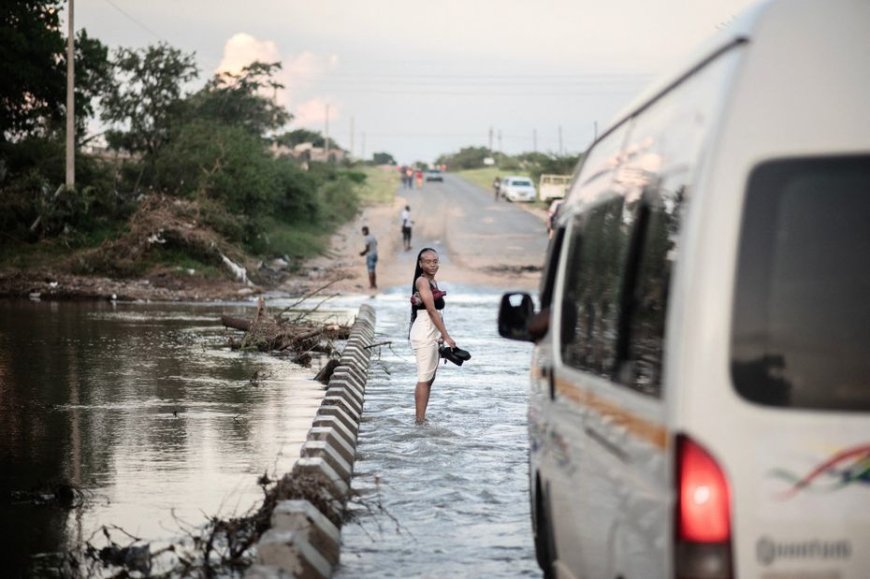Catastrophic weather extremes in southern Africa

In South Africa, one disaster situation follows another. After President Cyril Ramaphosa issued emergency measures last week due to the devastating electricity crisis, he felt compelled to declare a state of emergency due to flooding after heavy rains, especially in the east of the country. In seven of the nine South African provinces, countless houses were destroyed, cars were swept away and sewage treatment plants were flooded, the President's Office said. Dams were also overflowed and bridges destroyed. So far there is talk of twelve dead, several people are missing. Meteorologists expect more rain in the coming days.
The days of exceptional rainfall hit the Eastern Cape and Mpumalanga provinces in particular. In Limpopo province, a military helicopter rescued two men from an island in the Letaba River where they were stranded for three days. A 54-year-old man also spent four days in a tree before being rescued by an army helicopter. Important rail lines of the national railway were affected as well as the world-famous Kruger National Park, where several camps had to be closed and guests had to be evacuated. Nancy O'Farrell from the Irrigation Department in Mpumalamga announced that up to 300 millimeters of rain fell in some regions within eight hours: Countless pumps from farms were also destroyed. The effects of the floods on agriculture are "not yet foreseeable".
Severe destruction is also reported from Mozambique: the government in Maputo announced that almost 8,000 houses, 15 health centers and just as many schools were badly damaged there. So far, nine dead and five missing have been reported from neighboring South Africa: almost 40,000 people have been affected by the floods, it is said.
The state of disaster allows the South African government to purchase goods such as food and tents without bidding, and to enlist the help of the military to repair bridges and roads. Because a state of emergency declared during the corona pandemic was used by politicians of the ruling African National Congress (ANC) to enrich themselves with protective clothing purchased without tenders, the imposition of such a state of emergency is met with skepticism among the population.













































